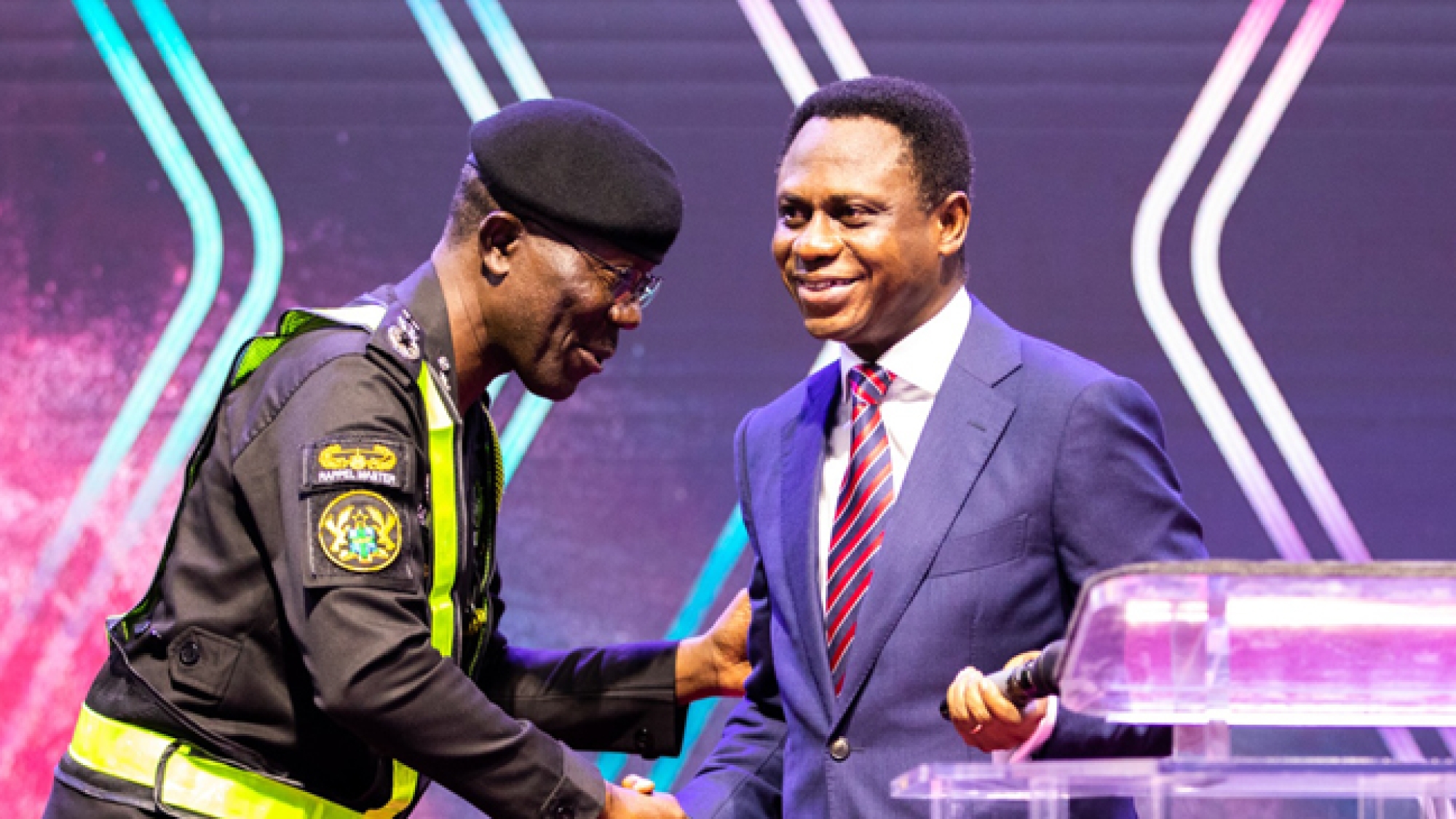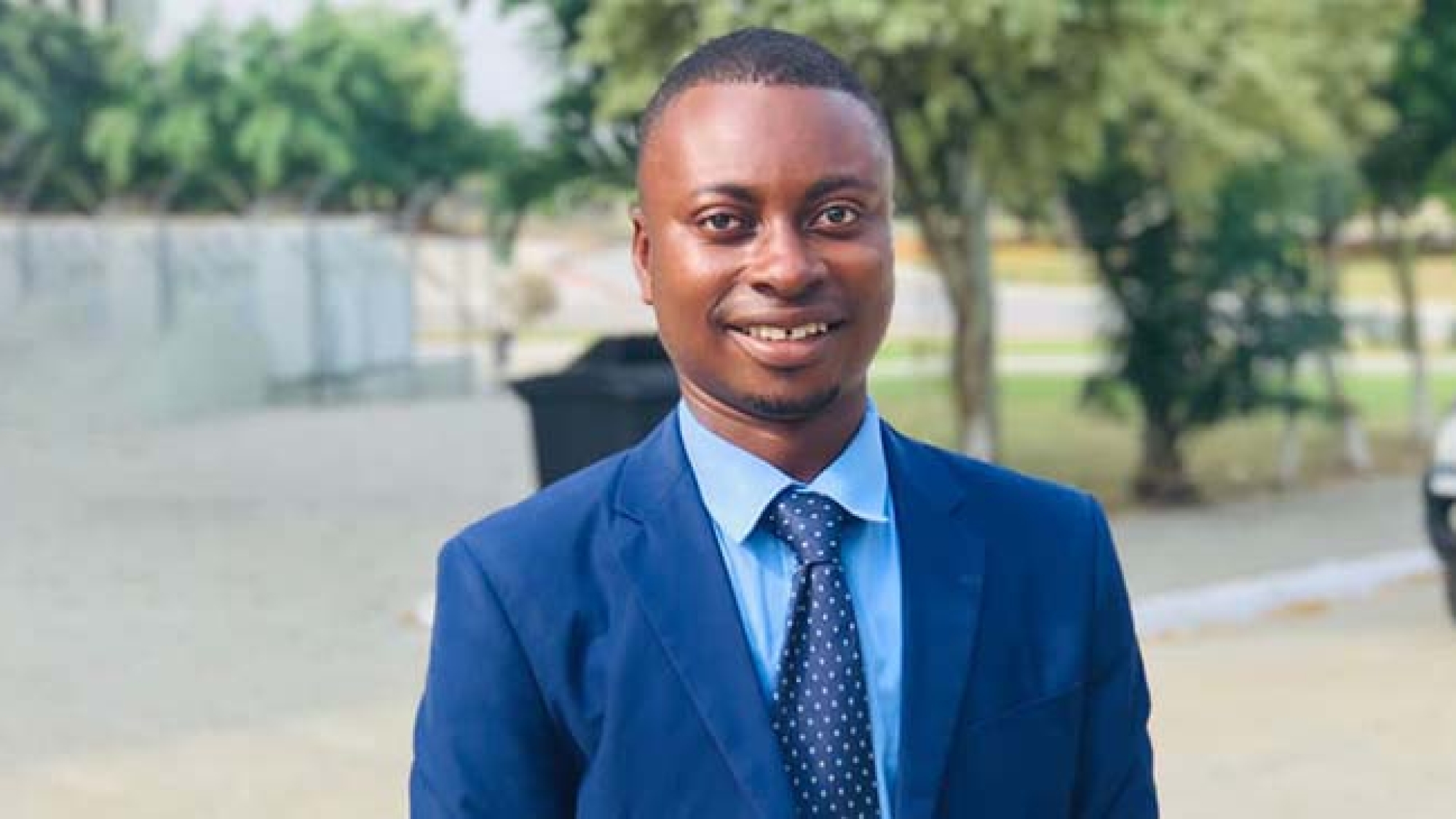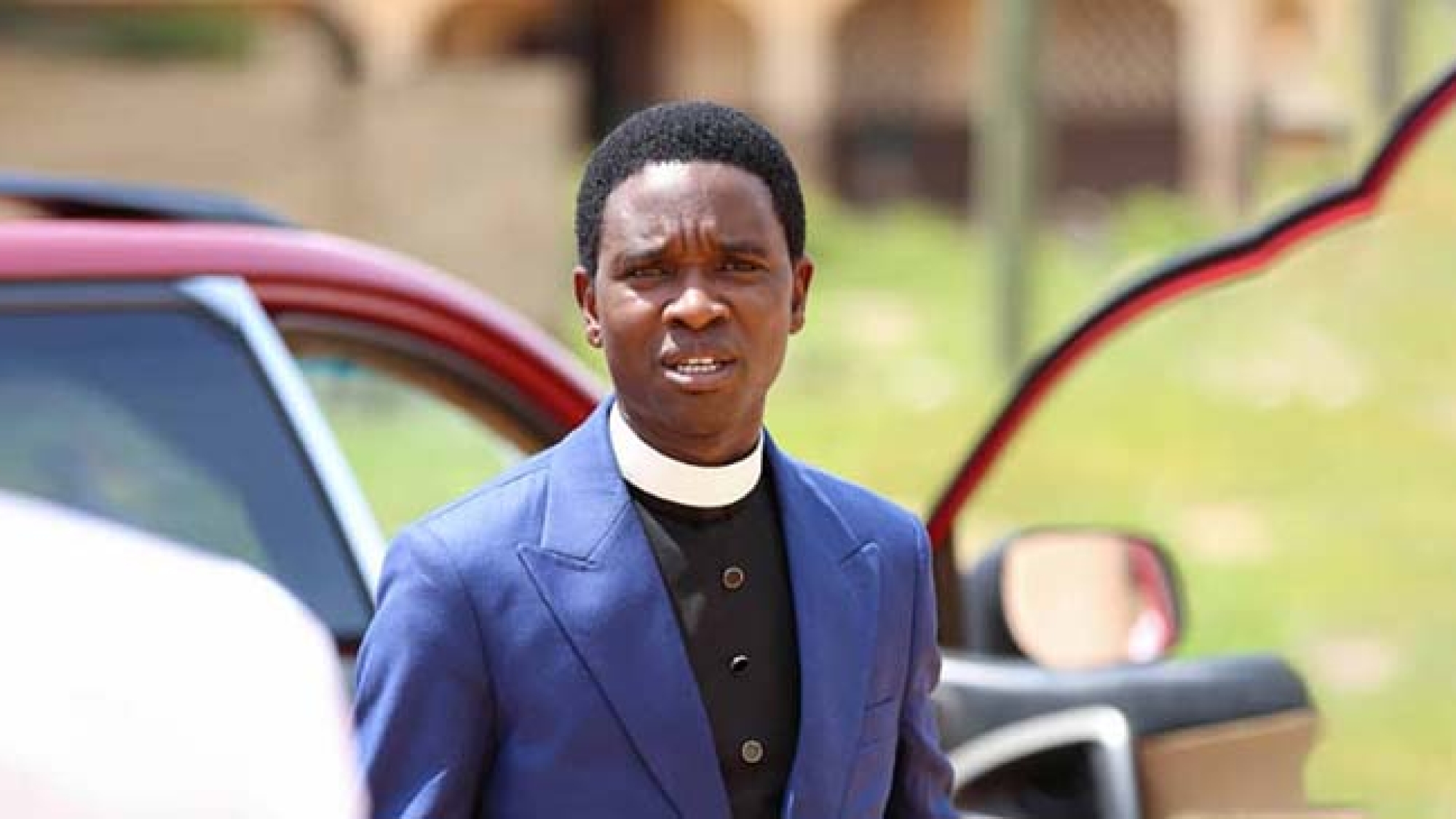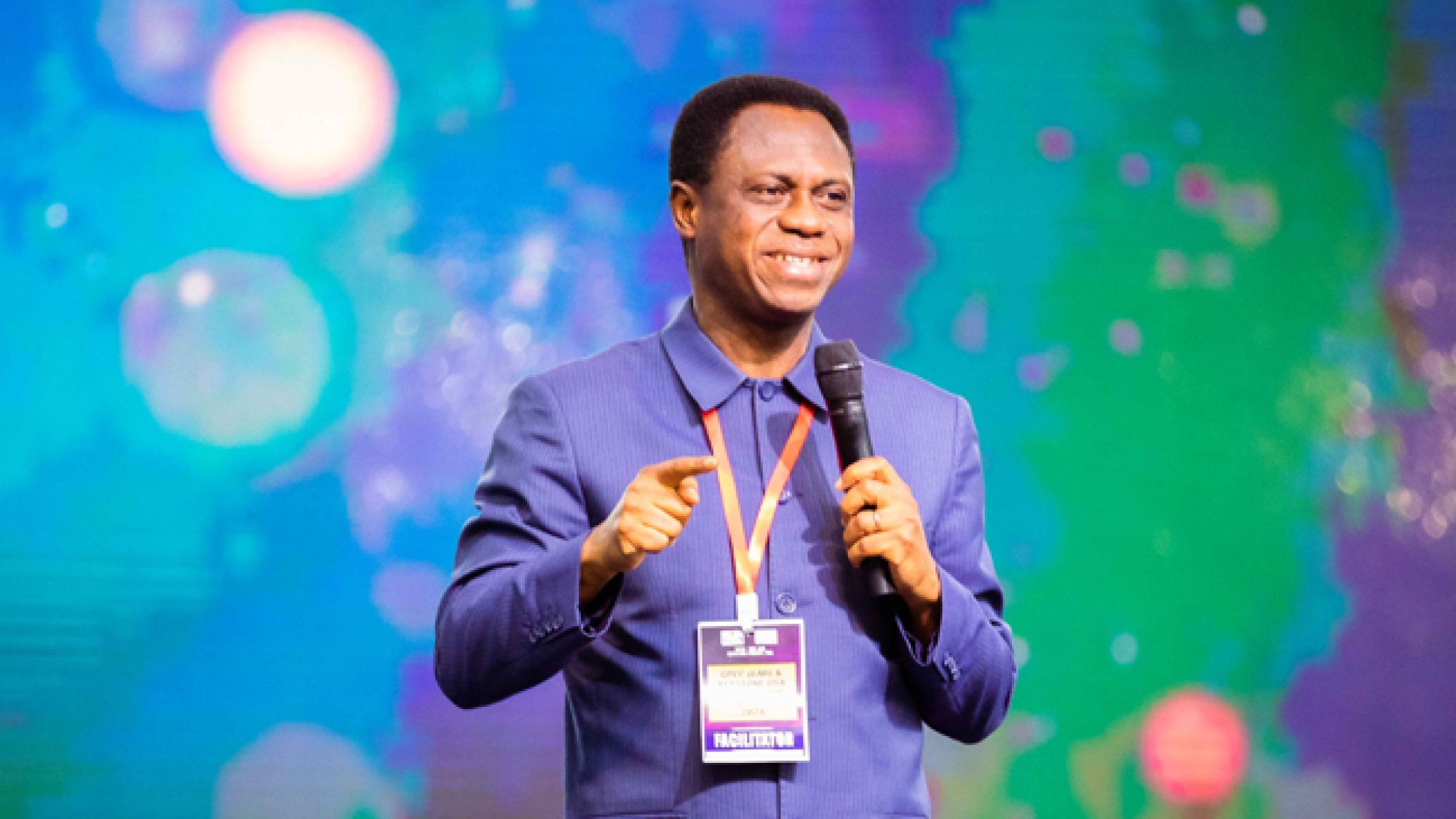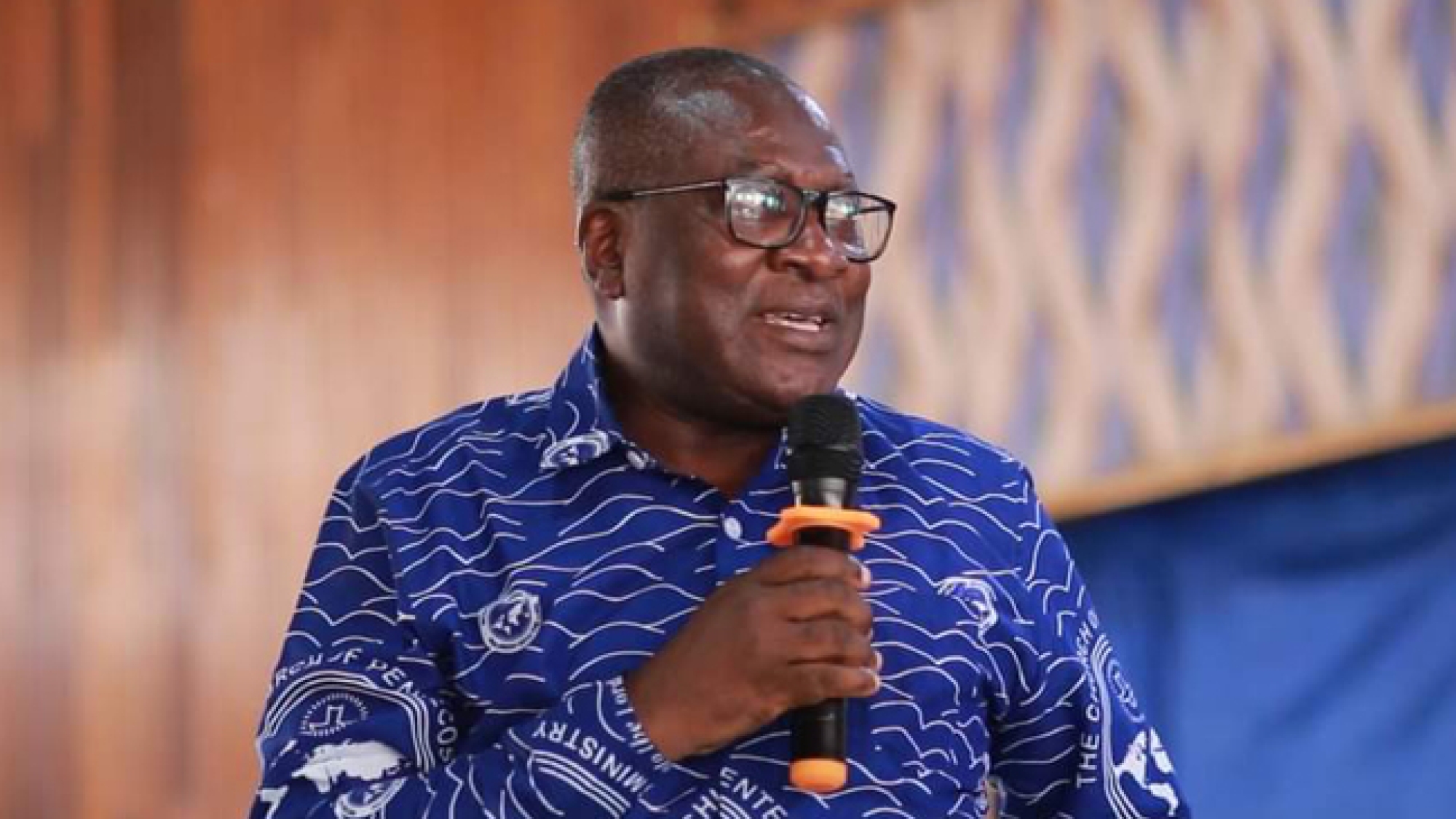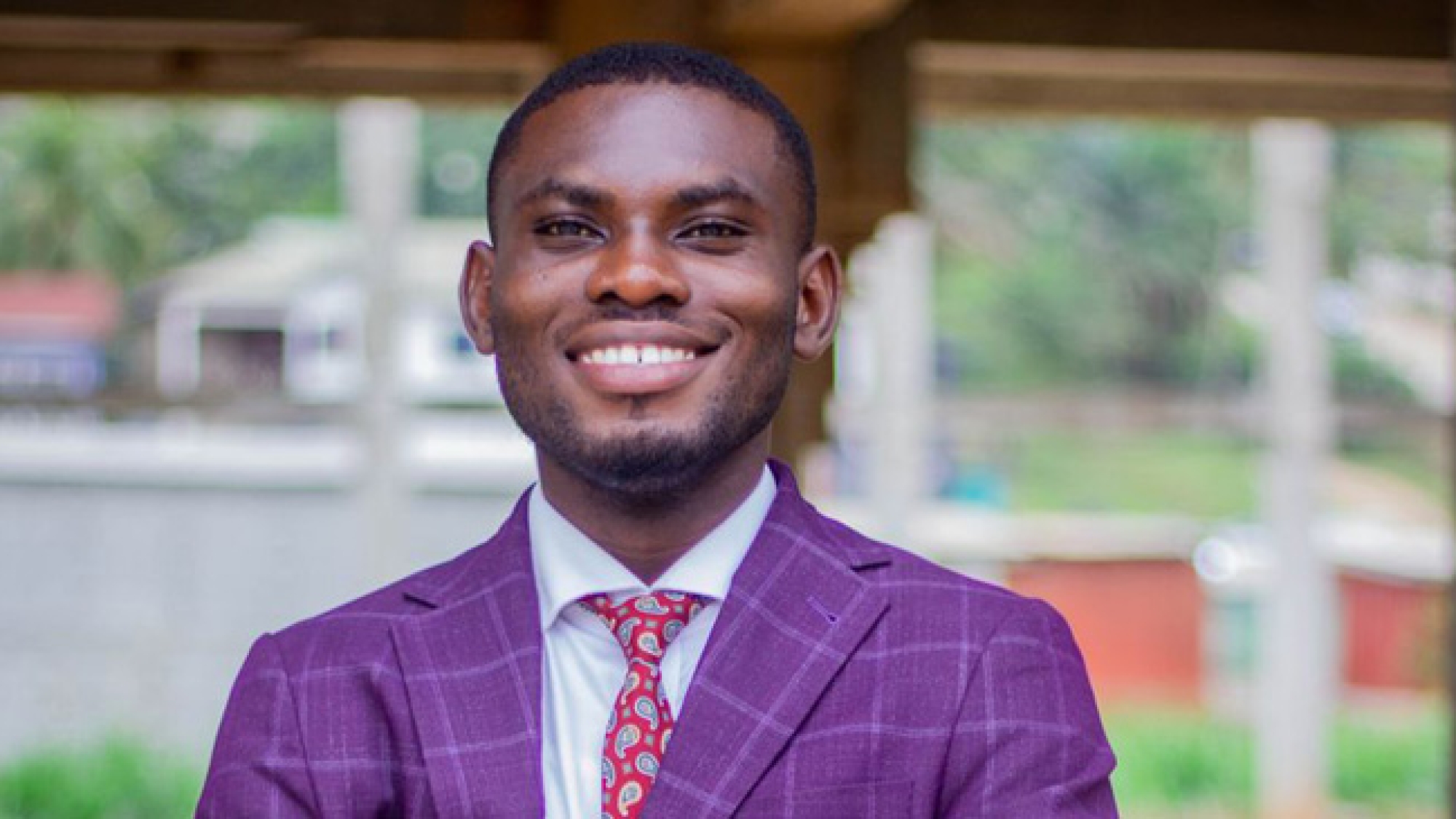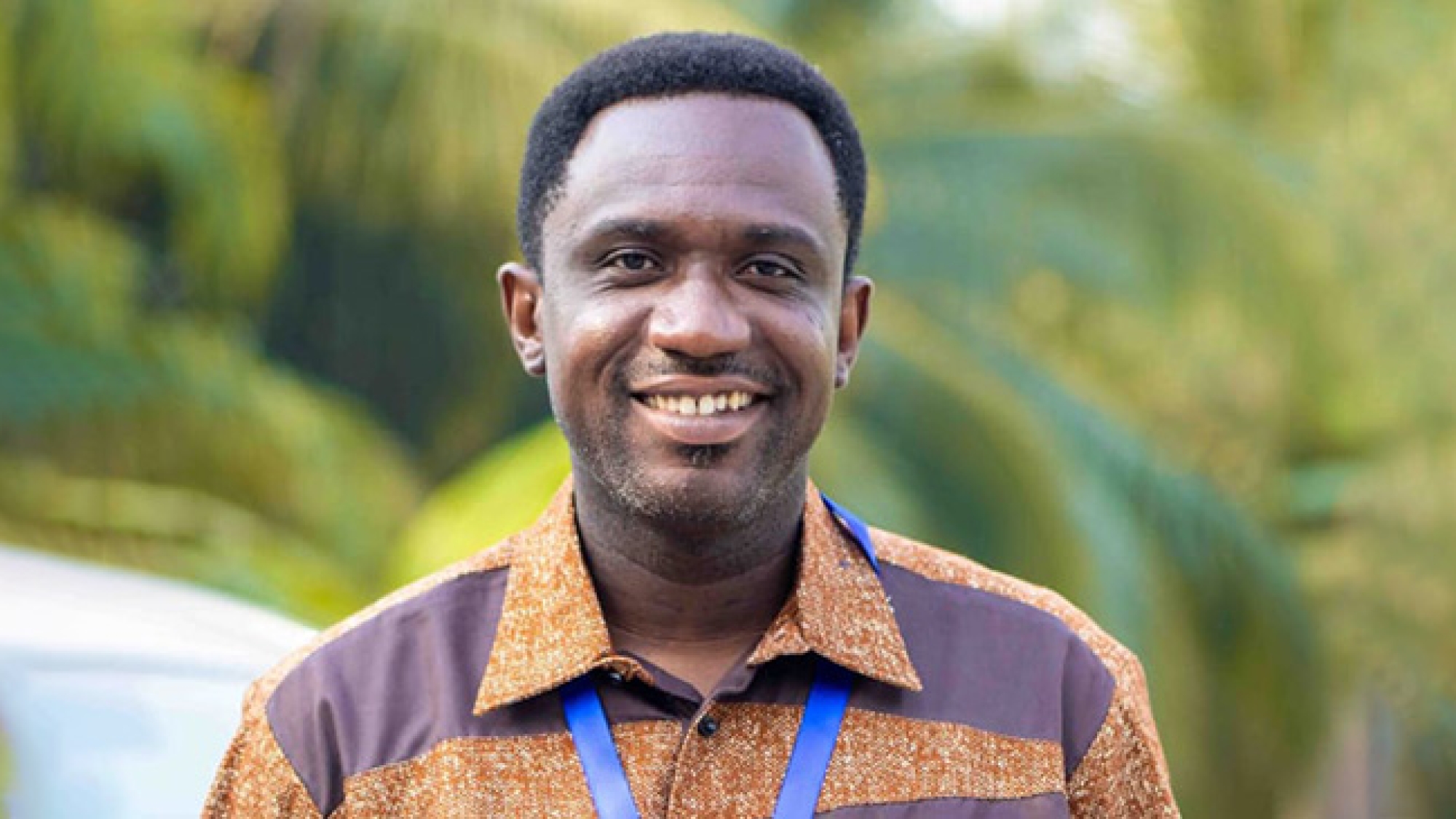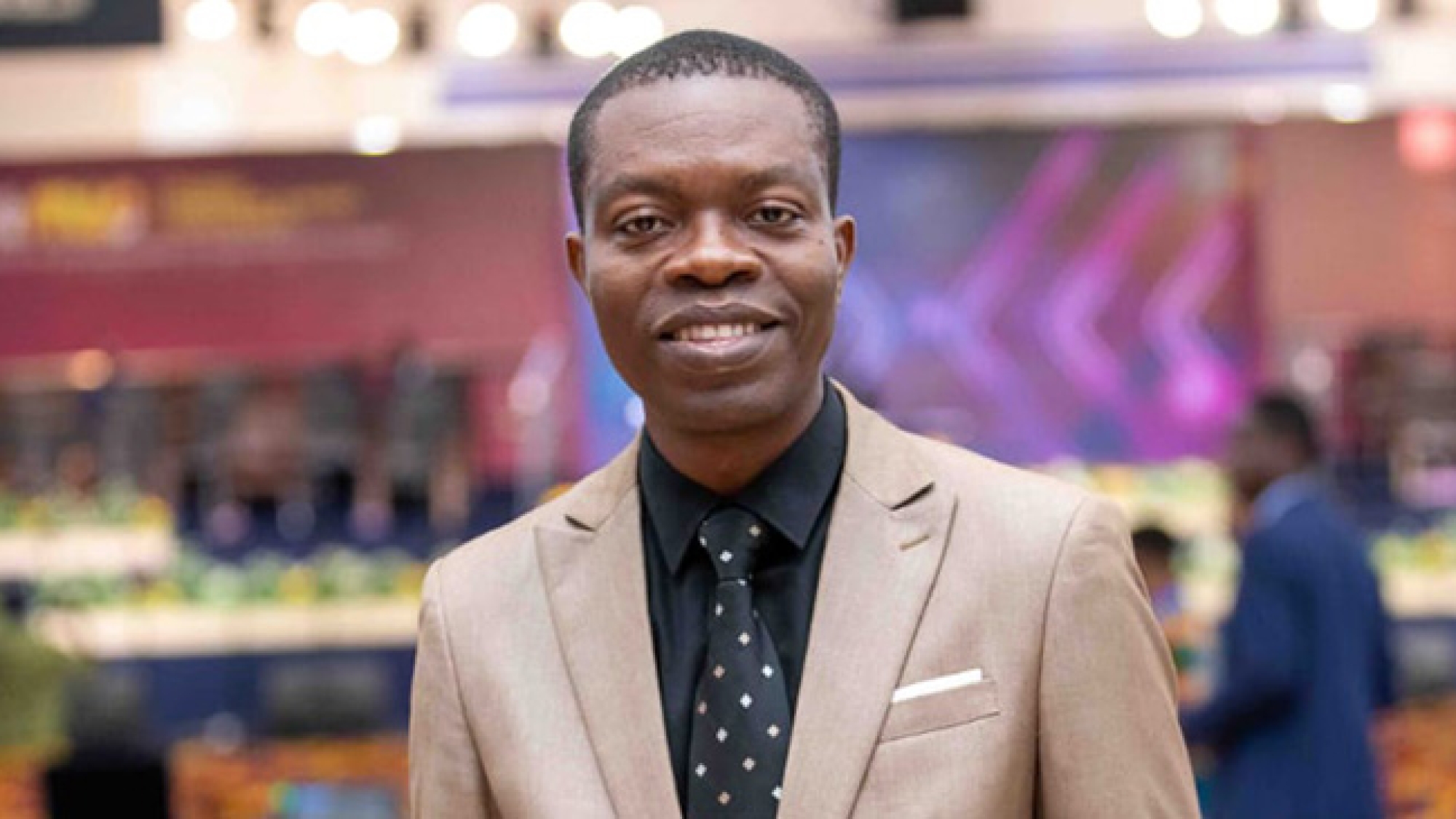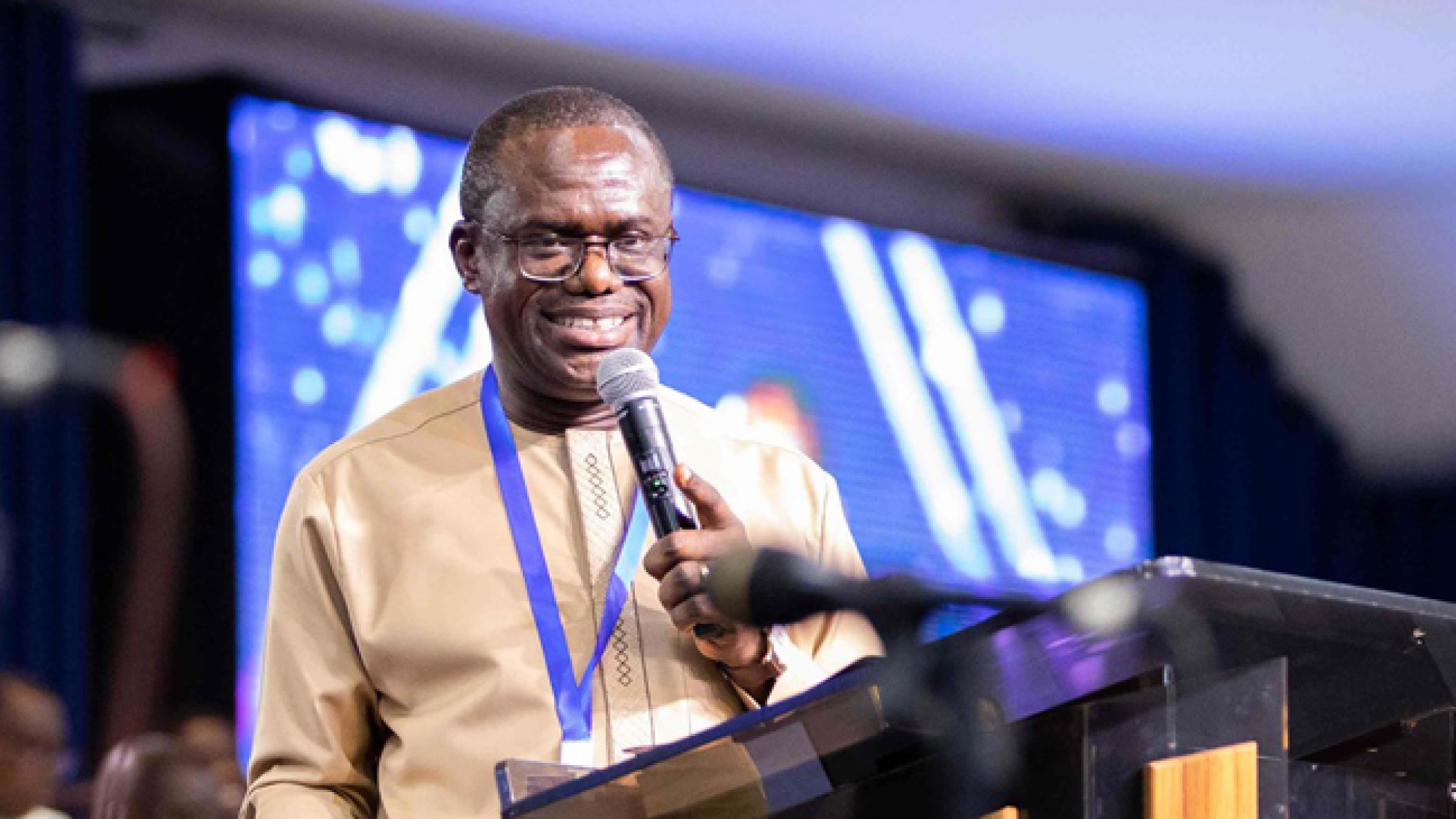The Chairman of The Church of Pentecost and President of the Ghana Pentecostal and Charismatic Council (GPCC), Apostle Eric Nyamekye, has been recognised as one of the 100 Most Reputable Africans in the 2024 list by Reputation Poll International (RPI).
The annual publication by the leading reputation management and public relations consultancy firm acknowledges individuals who have made significant contributions to their respective fields, establishing a robust reputation in the process.
Sharing the spotlight with Apostle Nyamekye is Dr. George Akuffo Dampare, the Inspector General of Police, His Eminence Peter Turkson (Cardinal of the Catholic Church), Pastor Dr. Mensa Otabil (Ghanaian Pastor and Motivational Speaker), HRM Drolor Bosso Adamtey (Suapolor, Se [Shai] Traditional Area), Mrs. Roberta Annan (Ghanaian Businesswoman, Investor and Philanthropist) and Mr. Eric Yirenkyi Danquah (Ghanaian Plant Geneticist).
The compilation spans diverse sectors such as politics, business, entertainment, and human rights advocacy, showcasing a broad array of influential personalities.
Ultimately, the 100 Most Reputable Africans in 2024, alphabetically listed, showcases the resilience and tenacity of the African continent. The compilation draws attention to individuals striving to change the world and improve the lives of others. It serves as both inspiration and a reminder of the multitude of gifted and accomplished individuals shaping the global landscape.
Below is the list of the 100 Most Reputable Africans in 2024:
- Abderrahmane Sissako || Mauritanian-born Malian Film Director and Producer
- Abshir Aden Ferro || Somalian Politician
- Abdul Samad Isyaku Rabiu (CFR CON) || Business Man and Philanthropist
- Abdulqawi Ahmed Yusuf || Somalia Judge and Attorney
- Abdulrazak Gurnah || Tanzanian-British Novelist and Academic
- Agnes Matilda Kalibata || President of Alliance for a Green Revolution in Africa (AGRA)
- Alek Wek || South Sudanese-British Model and Designer
- Angelique Kidjo || Singer & Songwriter and Actress
- Ann Peacock
- Armstrong Ume Takakang (Dr) || CEO, Nigeria’s Ministry of Finance Incorporated (MOFI)
- Berhane Asfaw || Ethiopian Palaeontologist
- Bience Philomina Gawanas || Namibian Lawyer
- Catherine Uju Ifejika || Lawyer and Legal Expert
- Claude Joséphine Rose Cardinal || Italian Actress
- Constance Connie Ferguson || Filmmaker, Businesswoman
- Cynthia Davies CBE || CEO of the Diversifying Group
- Danai Jekesai || Actress
- Daniël Christiaan de Wet Swanepoel || South-African Professor
- David Moinina Sengeh || Sierra-Leone Politician
- Debra Mallowah || Vice President for Coca-Cola’s East and Central African franchise
- Diébédo Francis Kéré || Architect
- Denis Mukwege (Dr)|| Pentecostal Pastor and Congolese Gynaecologist
- Drolor Bosso Adamtey (HRM) || Suapolor, Se (Shai) Traditional Area
- Ebenezer Bonyah || Associate Professor
- Elizabeth Maruma Mrema || Biodiversity Leader and Lawyer
- Eric Nyamekye (Apostle) || Chairman of The Church of Pentecost
- Ellen Johnson Sirleaf || Former President of Liberia
- Emmanuel Mark Kembe || South Sudan Musician
- Eric Yirenkyi Danquah || Ghanaian Plant Geneticist
- Euvin Naidoo || South African Banking Executive
- Femi Otedola || Nigerian Businessman and Philanthropist
- Folorunsho Alakija || Nigerian Businessman
- Fransisco Aupa Indongo || Namibian Businessman and Politician
- Fred Swaniker || Entrepreneur
- Gabriel Aduda || Permanent Secretary Ministry of Petroleum Resources Nigeria
- Gebisa Ejeta ||Ethiopian American Plant Breeder, Geneticist and Professor
- George Akuffo Dampare (Dr) || Inspector General of Police, Ghana
- Gideon Boko Duma || Motswana Politician
- Gilbert Houngbo || Togolese Politician and Diplomat
- Ibukun Awosika || Chairperson, Board of Directors, First Bank of Nigeria Limited
- Isatou Ceesay || Gambian Activist and Social Entrepreneur
- Jeanette Marais || CEO, Momentum Investment
- Jahman Oladejo Anikulapo || Nigerian Journalist
- Jean-Jacques Muyembe-Tamfum || Congolese Microbiologist
- Jimmy Volmink || Dean, Faculty of Medicine and Health Sciences at Stellenbosch University
- Joseph Nyumah Boakai || President of Liberia
- Juldeh Camara || Musician
- Julian Kyula || Co-Founder, Board Member, and Group CEO, MoDe
- Jumoke Oduwole || Special Adviser to the President of Nigeria on Ease of Doing Business in the Office of the Vice President
- Kandeh Kolleh Yumkellah || Sierra Leonean Agricultural Economist, Politician
- Kennedy Odede || CEO, Shining Hope for Communities (SHOFCO)
- Kenneth Sharpe || Zimbabwean Businessman, Philanthropist
- Khairy Beshara || Egyptian Film Director
- Ladisias Prosper Agbesi || CEO, Lash Group
- Leymah Roberta Gbowee || Liberian Peace Activist
- Mahmood Mamdani || Ugandan Scholar
- Manuel Lopes Andrade (Tcheka) || Cape Verdean Singer, Songwriter and Guitarist
- Masenate Mohato Seeiso (HRM) || Queen of Lesotho
- Maud Chifamba || Academician
- Mensa Otabil (Dr) || Ghanaian Pastor and Motivational Speaker
- Mike Jocktane || Politician and Pastor of Gabonese Protestants
- Mo Ibrahim || Founder, Mo Ibrahim Foundation
- Modupe Adefeso-Olateju || Organisational Leader and Policy Expert
- Mogoeng Mogoeng || South African Jurist
- Mohamed Hag Ali Hag el Hassan || Sudanese-Italian Mathematician and Physicist
- Mohamed Osman Baloola || Sudanese Scientist and Inventor
- Monique Nsanzabaganwa (Dr) || Deputy Chairperson, African Union Commission
- Muhammed Bulama (Dr) || Deputy Director, Multi-Media of the APC Presidential Campaign for the 2023 Presidential Elections
- Netumbo Nandi-Ndaitwah || Namibian Politician
- Ngozi Okonjo-Iweala (Dr) || Director-General of the World Trade Organisation (WTO).
- Nnenna Oti (Prof) || Vice-Chancellor of the Federal University of Technology Owerri.
- Nuhu Ribadu mni || Nigerian Politician and retired Police Officer
- Okello Oculi || Ugandan Novelist, Poet
- Ory Okolloh || Blogger, Lawyer, and Activist
- Pedro Verona Rodrigues Pires || Cape Verdean politician
- Enenche Paul (Dr) || Medical Doctor, Televangelist
- Peter Turkson (His Eminence) || Ghanaian Prelate, Cardinal of the Catholic Church
- Polycarp Pengo (His Eminence) || Tanzanian Prelate, Cardinal of the Catholic Church
- Rachid Yazami || Moroccan Scientist, Engineer and Inventor
- Dr. Rajae Ghanimi || Medical Doctor
- Rediet Abebe || Ethiopian Computer Scientist
- Roberta Annan || Ghanaian Businesswoman, Investor and Philanthropist
- Rosalia Hausiku Martins || Director, Namibia Chamber of Commerce and Industry Board
- Ronald Lamola || Politician and Attorney
- Rita Oyoku || Entrepreneur
- Samia Suluhu Hassan || President of Tanzania
- Sangu Delle (Dr) || Pan-African Entrepreneur and Investor
- Sherrie Silver || Choreographer
- Osinachi Kalu Okoro Egbu || Singer &Song Writer
- Sinari Bolade Daranijo || Entrepreneur
- Siya Kolisi || South African Rugby Player
- Sophia Karen Edem Ackuaku (Hon) || Managing Director, Amsos Ghana Ltd.
- Sven Thieme || Namibian Businessman
- Tariye Gbadegesin || CEO, ARM-Harith Infrastructure Investment
- Sister Theopista Namukasa || Teacher
- Trevor Noah || Comedian
- Tom Alweendo || Namibian Politician
- Vusi Thembekwayo || Businessman, Author, Speaker
- Wanjira Mathai || Vice President and Regional Director for Africa, World Resources Institute Kenya
- Zainab Hawa Bangura || Sierra Leonean Politician and Social Activist
PENTECOST NEWS.





